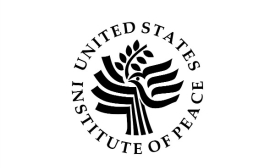peace
It was -3 degrees in Munich over the weekend and, inside the 51st Security Conference, there was an unmistakable cold war chill. For three days the Bayerischer Hof hotel was a security and diplomatic lockdown as western leaders clashed with Russian counterparts over the way into – and out of – the Ukraine crisis. Delegates arrived in glum agreement over the risks posed by the conflict, and departed after heated disagreements over whether military might or diplomatic skill could save the day.
So what if we envision a world of 2015 in which information technologies become agents of peace instead of sources of conflict? In many ways, we are already on that path, but the efforts are episodic.

Watch CBS' latest story on Pope Francis' 3-day trip to the Middle East, a strong Faith Diplomacy initiative that attempts to stabilize the position of the Christian population in the region.
If you thought all Russians were bloodthirsty lunatics hellbent on starting World War III, you would be wrong. On Saturday, tens of thousands of liberal Muscovites lined up to pass through metal detectors and march down a route lined with police and barriers in an effort to convince Putin to give peace a chance.
Israeli Prime Minister Benjamin Netanyahu bluntly told Barack Obama on Monday that Israelis expected their leader not to compromise on their security even as the U.S. president sought to reassure him on Iran diplomacy and pressure him on Middle East peace talks.
US Secretary of State John Kerry is reaching the last stretch of the first round (out of 12 at least) of the hopeless boxing match he is waging against the bitter fate in the Middle East. Kerry's paper will probably be called Terms of Reference, which is not easily translatable into Hebrew. Several alternative and loose translations are possible — such as "principles of reference," "an agreed-upon basis for discussion" or "negotiation guidelines" — and with them just as many variations.







